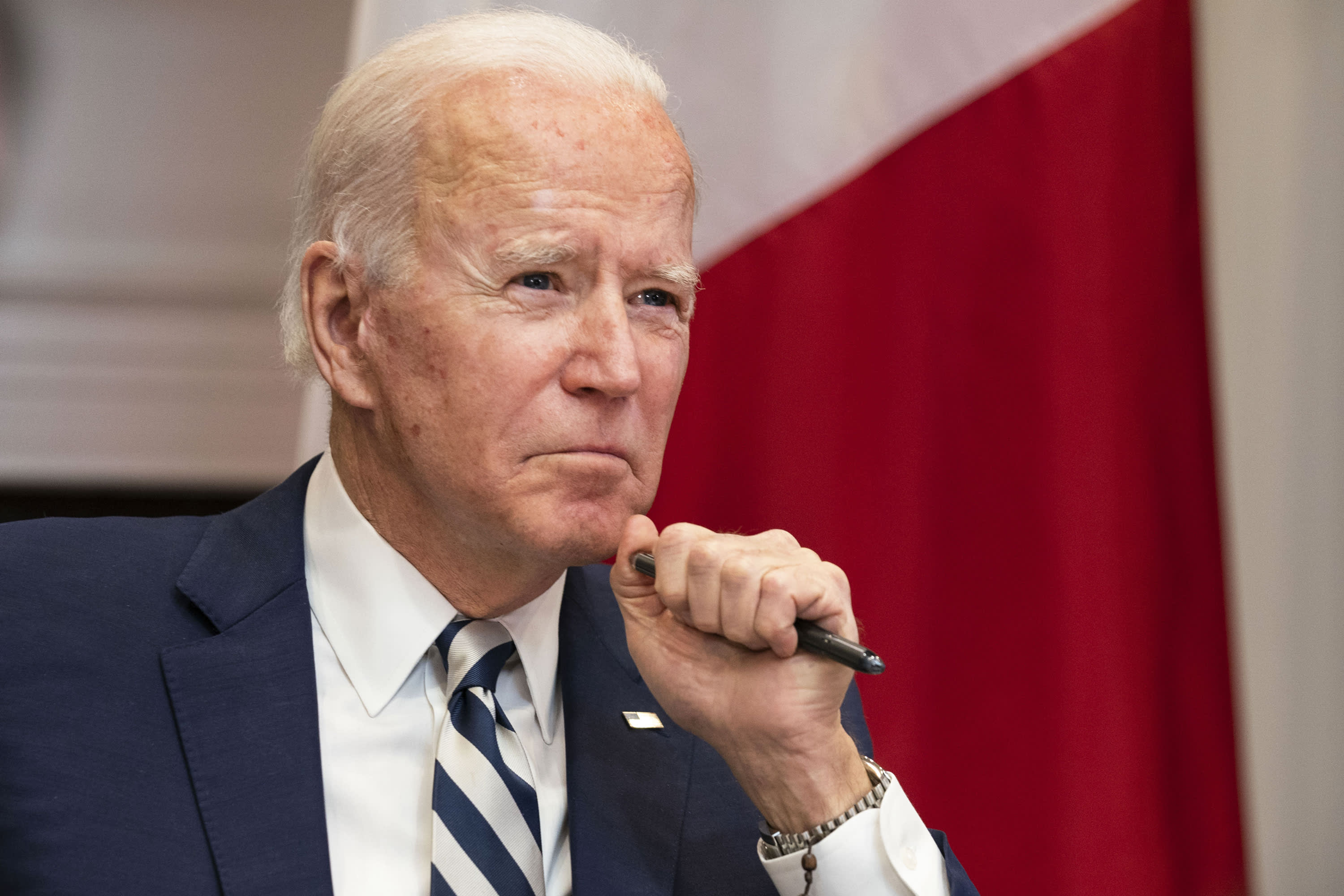US President Joe Biden is caught between “two opposing forces” when it comes to Saudi Arabia, according to Frederick Kempe, president and CEO of the Atlantic Council.
During his presidential campaign, Biden said Washington would make Riyadh the “pariah he is” and hold the kingdom accountable for human rights issues. However, the president now sees that Saudi Arabia’s support is important to its agenda in the Middle East region, said Kempe.
“If you want to contain Iran, if you want to take advantage of the positive impact of Arab-Israeli normalization through the Abraham Accords … if you want to bring a little peace to Syria and Yemen, there is hardly anything that can be done in the Middle East [without Riyadh], “Kempe told CNBC’s” Capital Connection “on Tuesday.
“Let’s not forget about controlling oil prices so that you can really have stable prices for the transition from energy to renewables, none of this can be done without Saudi Arabia, so how do you implement your human rights policy?” he said.
The United States last week imposed visa restrictions on 76 Saudis who “are believed to be involved in threats to dissidents abroad, including, but not limited to, Khashoggi’s assassination”.
However, Saudi prince Mohammed bin Salman was not Washington’s direct target, despite an intelligence report finding that he approved an operation to capture or kill journalist Jamal Khashoggi in 2018.
Critics have accused Biden of not defending human rights, but the White House has so far resisted pressure to punish the crown prince, although it reserves the right to take any action in the future.
US President Joe Biden in the White House Roosevelt Room in Washington, DC, on Monday, March 1, 2021.
Anna Moneymaker | The New York Times | Bloomberg | Getty Images
Atlantic Council’s Kempe, who is also a CNBC collaborator, said the importance of Saudi Arabia is one of the reasons why the State Department characterized the changes in Washington-Riyadh relations “not as a rupture, but a recalibration”.
While many in the Democratic Party may not be happy with this approach, it is “probably the right way to go,” said Kempe.
“The reality is that you would rather have a defective, and perhaps even deeply defective, ally than an opponent in this era of new powers and great competition of powers, where Saudi Arabia may depend more on China, more on Russia for its deliveries. weapons, for their economic strength, “he said.
Kempe said the US president is “weighing all of these things”.
“I think he is learning very quickly that it is much more difficult to be president of the United States than to be a candidate,” he added.
